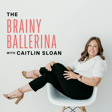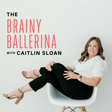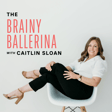
24. Your Burning Audition Questions Answered!
Caitlin here with a solo episode answering all your burning audition questions!
Questions like:
“Can you talk about any travel hack to save money when you travel to auditions?”
“Is it always those who stand out that get hired?”
“What is it like being cut during an audition?”
And so much more! Tune in to get my pro insight into the behind-the-scenes of audition season.
Links and Resources:
The Audition Hub: thebrainyballerina.com/auditionhub
The Ultimate Audition Guide: https://www.thebrainyballerina.com/theultimateauditionguide
Dance Audition Materials Audit: https://www.thebrainyballerina.com/digital-resources/p/dance-audition-materials-audit
1-1 Career Mentoring: book your complimentary career call
DanceHive: https://www.dancehive.net/
Let’s connect!
My WEBSITE: thebrainyballerina.com
INSTAGRAM: instagram.com/thebrainyballerina
Questions/comments? Email me at caitlin@thebrainyballerina.com


